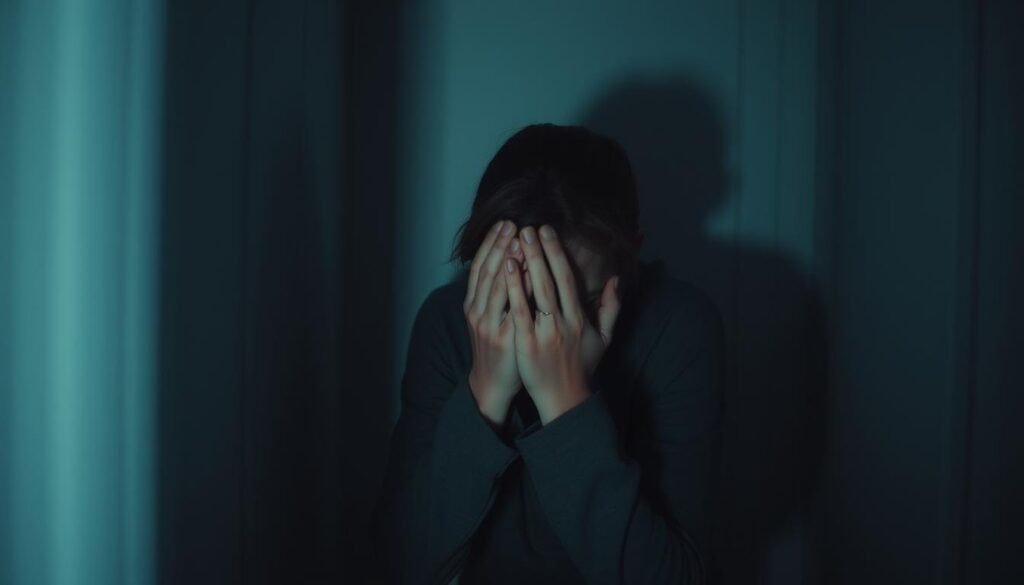Is It a Crime to Mentally Abuse Someone? You might have seen or gone through emotional abuse in many ways. But figuring out its legal side can be tricky.
Mental abuse, or psychological abuse, includes actions that hurt someone’s feelings deeply. The laws about mental abuse are complex. Whether it’s considered a crime depends on many factors.
When dealing with mental abuse, the law treats it differently in various situations and places. Knowing these details is key to spotting and stopping mental abuse.
Contents
- 1 Defining Mental Abuse and Its Impact
- 2 Is It a Crime to Mentally Abuse Someone? Legal Framework
- 3 When Mental Abuse Constitutes a Criminal Offense
- 4 Legal Protections for Vulnerable Populations
- 5 Building a Legal Case: Evidence Collection
- 6 Legal Remedies Available to Victims
- 7 Support Resources and Recovery Options
- 8 Understanding Mental Abuse: A Legal Perspective
- 9 FAQ: Is It a Crime to Mentally Abuse Someone?
Defining Mental Abuse and Its Impact
Mental abuse can be as harmful as physical abuse. It affects a person’s self-esteem, emotional health, and mental well-being. It can include verbal aggression, gaslighting, and emotional manipulation.
Mental abuse can lead to anxiety, depression, and even physical health issues. It’s important to understand mental abuse to recognize its signs and seek help. If you’re experiencing or witnessing mental abuse, know that abuse laws protect victims and hold perpetrators accountable.
Recognizing mental abuse is the first step to healing and recovery. Learning about mental abuse and its effects on mental health helps you support those affected. It also guides you through the resources available to help.
Is It a Crime to Mentally Abuse Someone? Legal Framework
Understanding mental abuse and its legal boundaries is crucial. The laws around mental abuse are complex. They cover both criminal and civil aspects.
Criminal vs. Civil Liability
Mental abuse can fall under criminal or civil law. Criminal liability kicks in if the abuse is serious, like harassment or stalking.
- Criminal cases are handled by the state and can lead to jail time.
- Civil cases are brought by the victim. They aim for compensation or restraining orders.
Knowing the difference between criminal and civil cases is key. For example, civil liability might apply if the abuse is not severe but still hurts the victim.
Several factors decide if mental abuse is a crime. These include the abuser’s intent, the abuse’s severity, and its effect on the victim.
When Mental Abuse Constitutes a Criminal Offense
You might not know that mental abuse can turn into a crime. It happens when certain actions are taken. The law sees mental abuse as a big deal, affecting a person’s mental health deeply.
Mental abuse is a crime when it includes stalking, harassment, or threats. For example, sending scary messages over and over can be a crime. It’s about actions that make someone feel really scared or upset.
The following table outlines examples of behaviors that may be considered criminal mental abuse:
| Behavior | Example | Legal Consideration |
|---|---|---|
| Stalking | Repeatedly following someone | Criminal offense if it causes fear |
| Harassment | Sending threatening messages | Criminal if it causes emotional distress |
| Threats | Making verbal or written threats | Criminal if they instill fear |
Understanding the legal criteria for what constitutes a criminal offense in cases of mental abuse is crucial for victims seeking justice.By recognizing the signs and knowing when to seek help, you can protect yourself or someone you know from the harmful effects of mental abuse.
Legal Protections for Vulnerable Populations
Legal protections for vulnerable populations are key in stopping and handling mental abuse. You are covered by many laws and rules made to keep you safe.
There are laws to protect certain groups, like the Elder Abuse Prevention and Prosecution Act and the Child Abuse Prevention and Treatment Act. These laws help in reporting and dealing with abuse.
There are many ways to report abuse. For example, you can tell local police, adult protective services, or child protective services. It depends on the abuse type and the victim’s situation.
| Population | Legal Protections | Reporting Mechanisms |
|---|---|---|
| Elderly | Elder Abuse Prevention and Prosecution Act | Adult Protective Services |
| Children | Child Abuse Prevention and Treatment Act | Child Protective Services |
| Individuals with Disabilities | Americans with Disabilities Act | Local Authorities, Disability Rights Organizations |
Knowing about these protections and how to use them is important. You can also get help from groups focused on victim support and abuse prevention.
Building a Legal Case: Evidence Collection
When you’re fighting against mental abuse in court, collecting evidence is key. You need enough proof to show the court who did the harm. This is the first step in building a strong case.
There are many types of evidence, like witness statements, documented communications, and records of incidents. It’s important to write down everything that happened. This helps show the abuse clearly.
Collecting evidence must be done the right way. You might need to work with police, lawyers, or people you trust. This ensures your evidence is valid and strong.
To collect evidence well, start by figuring out what’s important. Then, document it all carefully. Keep it safe and sound. This way, you build a solid case against mental abuse.
Legal Remedies Available to Victims
Legal options are there for those who’ve faced mental abuse. You can fight back against the person who hurt you. Knowing your rights and the laws that protect you is key to starting your healing journey.
If you’ve been mentally abused, you might get a restraining order. This order can keep the abuser away from you. You can also sue them in civil court for the emotional pain and costs you’ve faced.
| Legal Remedy | Description | Benefit |
|---|---|---|
| Restraining Order | A court order that requires the abuser to stay away from you. | Immediate protection from further abuse. |
| Civil Lawsuit | A legal action to claim damages for emotional distress and related expenses. | Financial compensation for the harm suffered. |
| Criminal Charges | Legal action against the abuser for criminal offenses related to mental abuse. | Holding the abuser accountable and potentially preventing future abuse. |
You don’t have to face mental abuse alone. Seeking legal remedies can be a powerful step towards reclaiming your life and your mental health. For more information on the legal process and the support available, consider reaching out to local support groups or legal aid services.

By understanding and using the legal options available, you can start to heal and move on. Remember, you have the right to seek justice and protect your mental health.
Support Resources and Recovery Options
Healing from mental abuse means using support resources that fit your needs. There are many recovery options to help you on your path to healing.
Key support resources include counseling, support groups, and online help. These offer a safe place to talk about your feelings and get advice.
| Resource Type | Description | Benefits |
|---|---|---|
| Counseling Services | Professional therapy sessions | Personalized guidance and support |
| Support Groups | Group therapy sessions | Community support and shared experiences |
| Online Resources | Web-based information and forums | Accessibility and anonymity |
Using these recovery options can greatly improve your mental health. It’s important to try different resources to find what suits you best.
Understanding Mental Abuse: A Legal Perspective
Mental abuse is a serious issue with big legal implications. The laws around it are complex. It’s important to know when it’s a crime.
There are laws to protect vulnerable people. Gathering evidence is key to building a case. You can also find legal help and support to recover.
Knowing about mental abuse and legal options is crucial. Being informed helps you navigate the legal system. It also helps you get the help you need.
See Also: Is It a Crime to Marry Your Cousin?
FAQ: Is It a Crime to Mentally Abuse Someone?
What constitutes mental abuse?
Mental abuse, also known as emotional or psychological abuse, is when someone’s actions harm your feelings. This can include yelling, making you feel scared, or trying to control you.
Is mental abuse a crime?
Yes, mental abuse can be a crime. This is true if it’s severe, like stalking or controlling behavior. Laws about this vary by place.
How do I prove mental abuse in a court of law?
To prove mental abuse in court, you need evidence. This can be witness statements, records of incidents, or reports from mental health professionals. They help show how the abuse affected you.
Can I sue someone for mental abuse?
Yes, you can sue someone for mental abuse. This is possible if the abuse was severe enough to be considered a tort. You’ll need solid evidence to support your claim.
What resources are available to support victims of mental abuse?
There are many resources for victims of mental abuse. These include counseling, support groups, and online help. Organizations like the National Domestic Violence Hotline and the National Alliance on Mental Illness offer assistance.
How can I report mental abuse?
To report mental abuse, contact local police or a trusted person. You can also reach out to organizations like domestic violence hotlines. They can guide you on what to do next.




